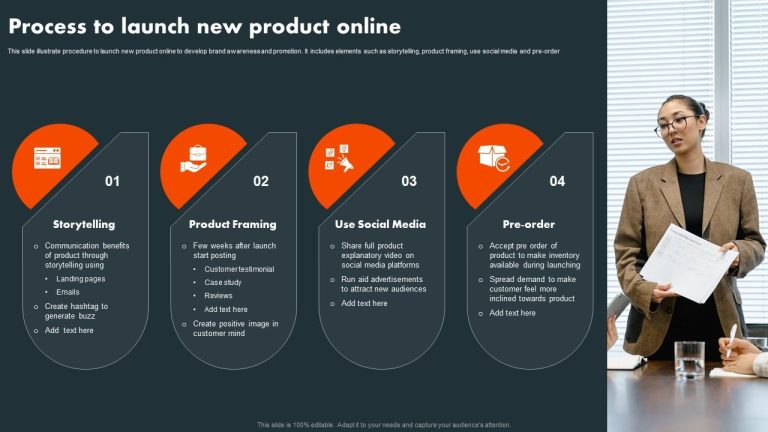Communication Skills That Advance Your Career
Communication skills are vital for advancing your career as they enable effective interaction and conveyance of ideas, leading to professional growth. Good communication promotes understanding, collaboration, and builds strong relationships, which are crucial in the workplace.
1. The Importance Of Communication Skills
Communication skills play a vital role in advancing your career. Being able to communicate effectively is not only essential in our personal lives but is equally important in the professional world. Enhancing your communication skills can open up numerous opportunities for growth and success in your chosen field. Let’s take a closer look at some key aspects that highlight the importance of communication skills.
1.1 Enhancing Professional Relationships
Building strong professional relationships is crucial for career advancement. Effective communication skills can help you establish rapport with colleagues, superiors, and clients. By conveying your thoughts clearly and actively listening to others, you can foster trust and respect. This enables you to work collaboratively, gain support, and access valuable resources that contribute to your professional development. Strong professional relationships are vital for gaining new opportunities, receiving recommendations, and staying connected within your industry.
1.2 Improving Team Collaboration
Collaboration is key in today’s workplace, where teamwork is highly valued. Good communication skills facilitate smooth collaboration among team members. When you can clearly articulate your ideas, actively listen to others, and provide constructive feedback, you contribute to a positive working environment. Effective communication ensures that everyone is on the same page, reduces misunderstandings, and enhances productivity. By collaborating effectively, you can accomplish projects more efficiently, surpass goals, and showcase your abilities as a team player.
1.3 Demonstrating Leadership Abilities
Leadership skills are highly sought after in any industry. Strong communication skills are a cornerstone of effective leadership. Being able to communicate with clarity and confidence allows you to inspire and motivate others. By articulating your ideas, expressing expectations, and actively listening to your team, you can foster trust and provide guidance. Effective communication enables you to delegate tasks, provide feedback, and resolve conflicts efficiently, showcasing your ability to lead and influence others. Good leaders are effective communicators, and by honing your communication skills, you demonstrate your potential for leadership roles and career advancement.

Credit: www.michaelpage.com.au
2. Essential Communication Skills For Career Advancement
In today’s fast-paced and competitive professional world, possessing strong communication skills is crucial for career advancement. Effective communication allows individuals to convey their thoughts, ideas, and information clearly and efficiently, leading to improved collaboration, increased productivity, and enhanced relationships with colleagues and superiors. Here are three essential communication skills that can propel your career to new heights:
2.1 Active Listening
Active listening is a fundamental communication skill that involves fully engaging with the speaker and understanding their message. By focusing on the speaker and avoiding distractions, you can grasp the speaker’s intent, emotions, and concerns, allowing for more meaningful interactions. Active listening also helps you develop empathy and build better relationships in the workplace.
Key techniques for active listening include:
- Maintaining eye contact with the speaker
- Avoiding interruptions and letting the speaker finish their thoughts
- Acknowledging and responding to the speaker’s message
- Asking clarifying questions to ensure comprehension
- Paraphrasing and summarizing the speaker’s points to demonstrate understanding
2.2 Effective Verbal Communication
Verbal communication involves the use of spoken words to convey information and express oneself. Mastering effective verbal communication can have a profound impact on how others perceive you and your ideas. Clear and concise verbal communication not only prevents misunderstandings but also fosters trust and credibility.
To improve your verbal communication skills:
- Speak clearly and enunciate your words
- Use appropriate tone and volume
- Organize your thoughts before speaking
- Choose words and phrases that are easy to understand
- Practice active voice and avoid jargon or technical terms when speaking to non-experts
2.3 Nonverbal Communication
Nonverbal communication includes all the cues and signals expressed through body language, gestures, facial expressions, and posture. It plays a significant role in conveying emotions, attitudes, and intentions without the need for verbal communication. Mastering nonverbal communication can help you effectively convey your message, establish rapport, and project confidence and professionalism.
Important aspects of nonverbal communication to consider:
- Maintain good eye contact to establish trust and engagement
- Use open and confident body posture
- Be aware of facial expressions and ensure they align with your intended message
- Use appropriate hand gestures to emphasize key points
- Pay attention to your tone of voice and use it to convey enthusiasm or empathy
3. Developing Effective Written Communication Skills
Strong written communication skills are essential for professional success. In today’s digital age, the ability to convey ideas clearly and concisely in writing is more important than ever. Whether you are crafting emails, writing reports, or engaging in business writing, honing your written communication skills will give you a competitive edge and advance your career.
3.1 Crafting Clear And Concise Emails
Emails have become the primary mode of communication in the modern workplace. Being able to compose clear and concise emails is crucial to effectively convey your message and avoid misunderstandings. When crafting emails:
- Begin with a clear and specific subject line to grab the recipient’s attention and provide an overview of the email content.
- Keep your sentences short and simple, avoiding jargon or convoluted language.
- Use bullet points or numbered lists to break down complex information into easily digestible chunks.
- Avoid excessive use of capital letters, as it can be interpreted as shouting.
- Proofread before sending to ensure your email is free from grammatical errors and typos.
By following these guidelines, you will be able to write emails that are concise, professional, and effective in conveying your message.
3.2 Writing Professional Reports And Documents
Creating well-written reports and documents is a valuable skill that showcases your professionalism and attention to detail. When writing reports and documents:
- Begin with a clear introduction that outlines the purpose and structure of the document.
- Organize your content logically, using headings and subheadings to guide the reader through the document.
- Include relevant data and statistics to support your arguments or conclusions.
- Use clear and straightforward language, avoiding unnecessary jargon or technical terms.
- End with a concise summary or conclusion that reinforces the main points of the document.
By mastering the art of writing professional reports and documents, you will stand out as a skilled communicator and enhance your credibility in the workplace.
3.3 Mastering Business Writing
Business writing involves various forms of written communication, such as memos, proposals, and business letters. Mastering the art of business writing is crucial to convey your ideas effectively and professionally. To excel at business writing:
- Know your audience and tailor your writing style to their needs and expectations.
- Use a formal tone and professional language that reflects the seriousness of the subject matter.
- Be clear and concise in your writing, avoiding excessive use of words or phrases.
- Structure your document logically with an introduction, body, and conclusion.
- Edit and proofread your work to eliminate any errors or inconsistencies.
By mastering business writing, you will be able to communicate your ideas effectively and professionally in various business contexts.

Credit: www.michaelpage.com.au
4. The Power Of Empathy And Emotional Intelligence In Communication
Discover the valuable skills of empathy and emotional intelligence in communication and elevate your career. These abilities empower you to connect authentically with others, fostering trust, understanding, and improved relationships. Maximize your potential by harnessing the power of these essential communication skills.
Effective communication skills are essential for success in any career. While technical expertise is important, the ability to connect with others on an emotional level can truly set you apart. Empathy and emotional intelligence play a crucial role in communication, enabling you to understand and relate to others, manage emotional responses, and build trust and rapport. Let’s explore these important aspects further:
4.1 Understanding And Empathizing With Others
Understanding and empathizing with others is a cornerstone of effective communication. It involves putting yourself in someone else’s shoes and seeing things from their perspective. By doing so, you develop a deeper understanding of their emotions, thoughts, and motivations. This not only strengthens your bonds with others but also allows you to tailor your communication approach to meet their specific needs.
4.2 Managing Emotional Responses
In the heat of the moment, emotions can run high, potentially derailing effective communication. However, emotional intelligence enables you to manage your own emotions and navigate challenging situations with composure. By staying calm and composed, you can avoid reacting impulsively and instead respond thoughtfully and empathetically. This helps to foster a positive and constructive atmosphere, where conflicts can be resolved more smoothly.
4.3 Building Trust And Rapport
Building trust and rapport is vital for effective communication and successful relationships in the workplace. When others feel understood and valued, trust naturally develops. By demonstrating empathy, active listening, and open-mindedness, you can create an environment where people feel safe to express their thoughts and concerns. This paves the way for collaboration and teamwork, leading to better outcomes and a more harmonious work environment.
5. Overcoming Communication Challenges And Conflict Resolution
Effective communication is crucial for career advancement. It helps in building strong relationships, resolving conflicts, and fostering collaboration. In this section, we will explore three key areas that will enhance your communication skills and propel your career forward.
5.1 Dealing With Difficult Conversations
Difficult conversations are inevitable in the workplace. Knowing how to handle them with tact and empathy can make all the difference. Here are some strategies to navigate through challenging discussions:
- Choose the right time and place: Find a comfortable and private setting to ensure privacy and minimize distractions.
- Listen actively: Pay full attention to the speaker, and show empathy by reflecting their feelings and concerns back to them.
- Stay calm and composed: Keep emotions in check, remain respectful, and focus on finding a resolution.
5.2 Conflict Resolution Techniques
Conflict is a natural part of any workplace, but how you handle it determines the outcome. Here are effective conflict resolution techniques:
- Identify the root cause: Dig deeper to understand the underlying issues and concerns of all parties involved.
- Encourage open communication: Create a safe space for everyone to express their thoughts and feelings.
- Seek a win-win solution: Look for mutually beneficial outcomes that address the concerns of all parties involved.
5.3 Negotiation And Persuasion Skills
Negotiation and persuasion are essential skills that can help you influence others and achieve desired outcomes. Here’s how you can improve these skills:
- Prepare and research: Understand the interests and objectives of all parties involved to build a strong case.
- Communicate with clarity and confidence: Clearly articulate your viewpoint, using persuasive language and active listening.
- Collaborate for a win-win outcome: Find common ground and work towards a solution that benefits all parties.

Credit: www.amazon.com
Frequently Asked Questions On Communication Skills That Will Advance Your Career
How Can Communication Skills Help You In Your Career?
Effective communication skills can greatly benefit your career. They allow you to clearly express ideas, build strong relationships, and collaborate with others. By effectively communicating, you can enhance your professional reputation, secure better opportunities, and ultimately achieve success in your chosen field.
How Would You Use Communication To Advance A Career In Management?
Communication skills are essential for advancing a management career. Effective communication helps in conveying ideas clearly, building relationships, and resolving conflicts. It enables you to delegate tasks, motivate employees, and provide feedback. By mastering communication, you can demonstrate leadership and enhance your ability to manage teams effectively.
How Can Communication Skills Help You In The Future?
Good communication skills enhance future prospects by boosting relationships, fostering teamwork, and opening doors to new opportunities.
How Communication Contribute To Success In Career Development?
Effective communication plays a crucial role in career development as it fosters stronger connections, enhances teamwork, and promotes professional growth. Clear and concise communication helps in building relationships, conveying ideas, resolving conflicts, and influencing others positively. It is an essential skill that enables individuals to succeed in their careers.
How Can Communication Skills Boost Your Career?
Communication skills can boost your career by improving your relationships, collaboration, and leadership abilities, making you more effective and promotable.
Conclusion
Effective communication skills are a fundamental aspect of career advancement. By honing these skills, individuals can increase their chances of success in today’s competitive professional landscape. From active listening to persuasive speaking, the ability to communicate effectively fosters strong relationships, facilitates collaboration, and enhances leadership abilities.
So, cultivate these invaluable skills to unlock new opportunities, establish yourself as a standout professional, and take your career to new heights.






